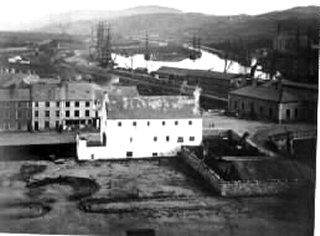One can only speculate what might have been the outcome of the 1798 Rebellion in Ireland had not so many Ulster Presbyterians, the backbone of that radical movement the United Irishmen, left our shores in the eighteenth century to find a new life in America. Our previous article demonstrates what a huge effect these pioneering people had on the future history of that emerging nation on the other side of the
Subsequent emigration patterns of the nineteenth and twentieth centuries were mainly of destitute or impoverished people, Catholics driven off the land, but the enterprising Presbyterians of the eighteenth century – also ironically fleeing religious persecution (from leaders of the Established Protestant Church) and economic and social deprivation – became hardy, resolute immigrants who as first settlers, quickly integrated into the new nation.
An estimated quarter of a million, most of recent Scottish Presbyterian stock left
There were five great waves of this emigration pattern: 1717-18; 1725-29; 1740-41; 1754-55; and 1771-75. That first wave was instigated by a severe drought that ruined
Despite the hazardous journey of six to eight weeks, most reached their destination to start a new life in more felicitous circumstances. It was generally accepted that the
